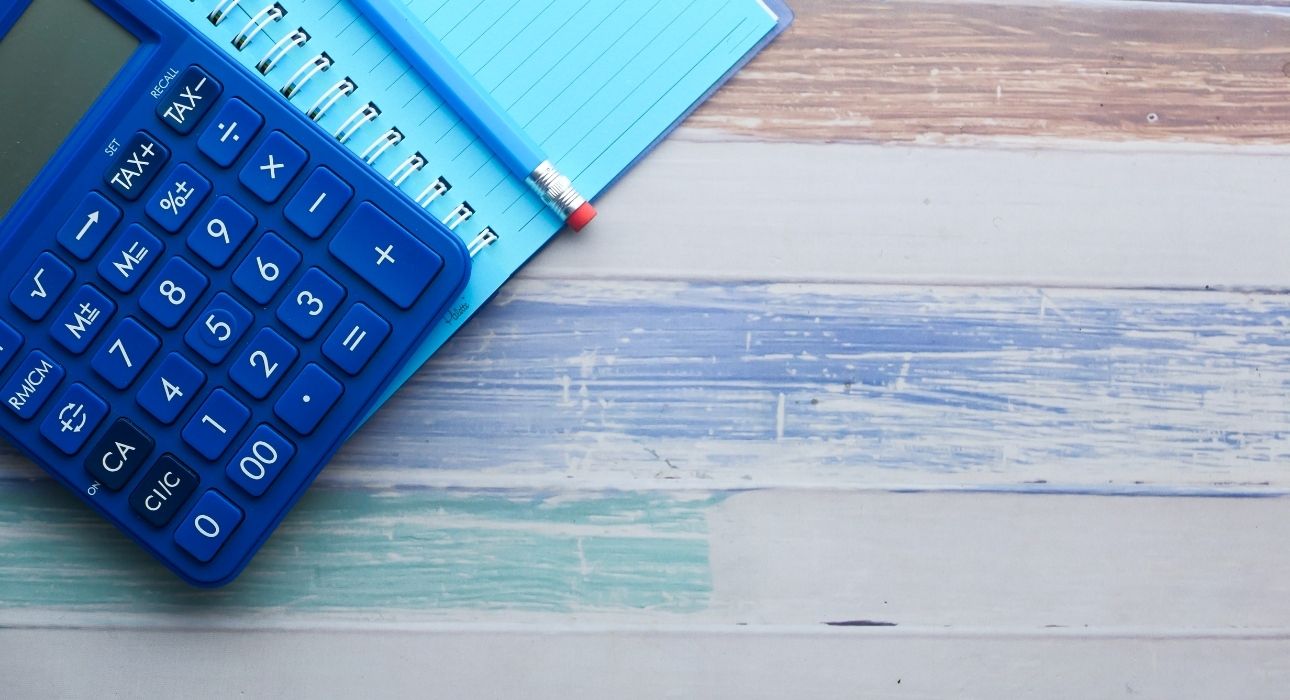
Get the Best Results with Richr: The Top Discount Real Estate Broker in Florida
Are you looking to buy or sell a property, but…
February 2, 2023
Learn the best budgeting tips and tricks so you can save money to buy a home this year.
Table of Contents:
Budgeting 101: How to Budget Money and Save to Buy a home
Budgeting 101: Budget Tips for Beginners
Reduce Your Spending and Recognize Bad Habits
Get a Side Hustle or Extra Stream of Income
Frequently Asked Questions (FAQ)
What should be my budget when buying a house?
How do you start a budget for a house?
What is the 70 20 10 Rule money?
What is the 50 20 30 budget rule?
Can you buy a house with no savings?
How much should I save a month to buy a house?
How do I save money for a mortgage?
How can I make my first budget?
Do you need to have a lot of money in the bank to buy a house?
Who can help me with budgeting?
Everyone knows the golden rule of home buying: don’t spend more than you can afford. Affordability is defined differently by each customer.
A pre-approval letter from a mortgage lender isn’t enough to identify the ideal price point. Many first-time homebuyers focus their decision solely on the amount of money that a lender is willing to loan them. If they can’t keep up with the payments, they may be in danger of going into default and losing their home, which isn’t the best budget idea.
It might be challenging to get enough money to buy a property at times. Good savings habits can enable anyone to accumulate a sizable deposit toward their dream house. If you want to make saving for a home a little easier, there are a few basic methods you should try.
With these budget ideas and strategies, we’ll show you how to save for a down payment on your future home.
Budgeting is the first step to saving. Saving for a down payment might be tricky if you don’t know where your money is going.
To begin, gather your bank and credit card statements and payments. Make a list of your most costly purchases. Keep track of your expenditures on needs like rent, school loans, and utilities. Consider how much you spend on non-essentials like entertainment, restaurants, etc. Budgeting software can help individuals who don’t want to calculate their own spending.
After categorizing your spending, search for methods to save money. Set a budget for each area and stick to it. Consider putting down a monthly amount for your down payment. Assume your finances are a need.
A poor habit can cost you hundreds of dollars a year. Consider saving money for a down payment by giving up these bad habits:
Convenience shoppers (who doesn’t like delivery orders?) may want to reduce their purchases. Unsubscribe from marketing emails if you don’t want to see bargains often. This will save you money and space in your house.
Fast food and takeaway are both great alternatives. But it is not cheap—Cook at home a few nights a week instead of ordering takeout.
If you’re prone to impulsive spending, automating your savings may be a good idea. The first step in saving for a down payment is determining your monthly budget.
The bank can set up automatic transfers from your primary account to a second savings account. A monthly withdrawal from your account by your bank into a separate account for you. This can help people who struggle with money management.
Limiting your spending may help you avoid unnecessary purchases. Payday or a time when you’re sure you’ll have enough money to withdraw is ideal. Overdraft costs may eat into your deposit.
Having many sources of income might help you save for a down payment on a property. If one of your sources of income unexpectedly runs out, having a backup plan in place is a good idea. You won’t have to worry about a sudden change in income when it comes to making your mortgage payments.
A passive income activity like creating an online course might only bring in $5 this month. Your monthly earnings may be greater than your monthly income if traffic climbs as much as expected. In order to amass an extensive financial portfolio, there are several options:
If you’re planning to save for a house, you’ll want a solid plan in place. However, you must first determine the amount of money required for a down payment. Many people believe that purchasing a home necessitates a 20% down payment, but in reality, a 3% down payment is very attainable.
There are several strategies to save for a down payment. Make a monthly savings target for a down payment in your household budget to get started.
According to the majority of financial experts and their home budgeting recommendations, housing costs should not exceed 30 percent of your overall monthly income. You’ll have to pay for everything from your mortgage to your insurance to your property taxes to your homeowners’ association dues.
Having a larger deposit will provide you with more options when it comes to purchasing a property. When it comes to deposits, 10-15 percent is the norm, with a 20 percent deposit being the ideal. 5% down payments are allowed by several government programs and mortgages; however, there are drawbacks.
The x 4.5 simple budget rule asserts that lenders will only lend 4.5 times your monthly income in order to prevent lending too much to individuals who can’t pay it back. When purchasing with someone else, you’ll have the ability to get a larger mortgage because of the joint income for budgetary guidelines.
In order to start building a budget for a house, you’ll need to understand your current financial picture and money spending habits. Start by assessing your income – how much do you make each month? Then calculate all the necessities. This includes:
According to many good budgeting plans, this should only account for 50% of your income. If it exceeds your income, you’ll have to adjust your budget breakdown to have less personal spending for your wants since your priority should be at least 20% to your savings.
By following the 70-20-10 budget plan, you are dividing your take-home income into three equal portions and putting one-third of your earnings into savings and the remaining 10% into charity contributions. Essentially, it is all that is required for this budget percentage breakdown.
According to the 70/20/10 budget guidelines, you will spend 70% of your monthly income, save 20% of your monthly revenue, and donate 10% of your monthly income to charity. Alternatively, it is conceivable that the “donation” category will take the place of any outstanding debt that you may have.)
The basic budgets rule of thumb to follow for money distribution is the 50/30/20. While not a hard and fast rule, it is a fundamental guideline that may be used to aid you in establishing an effective financial strategy when budgeting for beginners.
50 percent will go to your needs in your personal budget. Needs are those things that you can’t live without, or at the very least cannot live without very easily. They consist of items such as:
Wants receive 30% of the total budget money. Wants are things that you desire but do not require in order to exist. They could include the following:
20 percent will be allocated to financial objectives when building a budget. This category is divided into two major sections:
Essentially, you can’t buy a house without savings unless you have another means for a down payment and to cover closing costs. Even then, lenders will want you to prove that you can follow budget guides with some savings for the first few payments.
The sooner you begin saving for a down payment, the less money you’ll need to save each month to reach your goal.
The estimates are based on a 5% rate of return on investments and a $275,000 property purchase price. Here’s how much money you’ll need to put create a budget for each month.
If you start saving at the age of 20:
If you start saving at the age of 25:
If you begin saving at the age of 30:
Because these estimates only account for the down payment, you’ll probably need a little more to cover closing expenses, insurance, and other fees. Home prices fluctuate as well, and the median price may grow in the following five, ten, or fifteen years. It’s best to focus on budgeting strategies sooner rather than later.
You can save money for a mortgage by creating a budget and taking it seriously. Until you get in the habit of spending less than you earn, you should review your budget weekly to see if you need to allocate less funds for wants and more for necessities that month for some extra budget help.
You can follow the 50/2030 or 70/20/10 as your standard budget ideas. Find what works for you and commit to restricting your wants as the best way to budget successfully.
In order to create a budget for the first time, you can follow some of our budgeting tips for beginners. First, you’ll want to gather some information to start crunching the numbers when making a budget. This includes:
When purchasing a home, one of the most unpleasant discoveries is discovering that you would require substantially more money when budgeting than simply a down payment to complete the transaction. It’s difficult enough to save enough for a down payment on a house, let alone discover that you’ll need more funds – and in many cases, a lot more – to complete the purchase. Here’s how much money you’ll need in the bank to buy a house:
Apps, spreadsheets, software, and even scraps of paper may all be used to create budgets. But to get an actual crash course in Budget 101, you can speak to a financial planner. They aren’t only available for investors looking to buy stocks. They can help you set up a budget to meet your financial goals and give you budget tips to stick with them.
Budgeting to save to buy a home is a significant first step in achieving your real estate goals. If you submit your offer through Richr, you can budget for 2% of the purchase price to go right back to your bank account for some extra spending or towards your savings goal. Budgeting for your real estate wealth starts with Richr.

If you want the Richr team to help you save thousands on your home just book a call.
 Book a call
Book a call